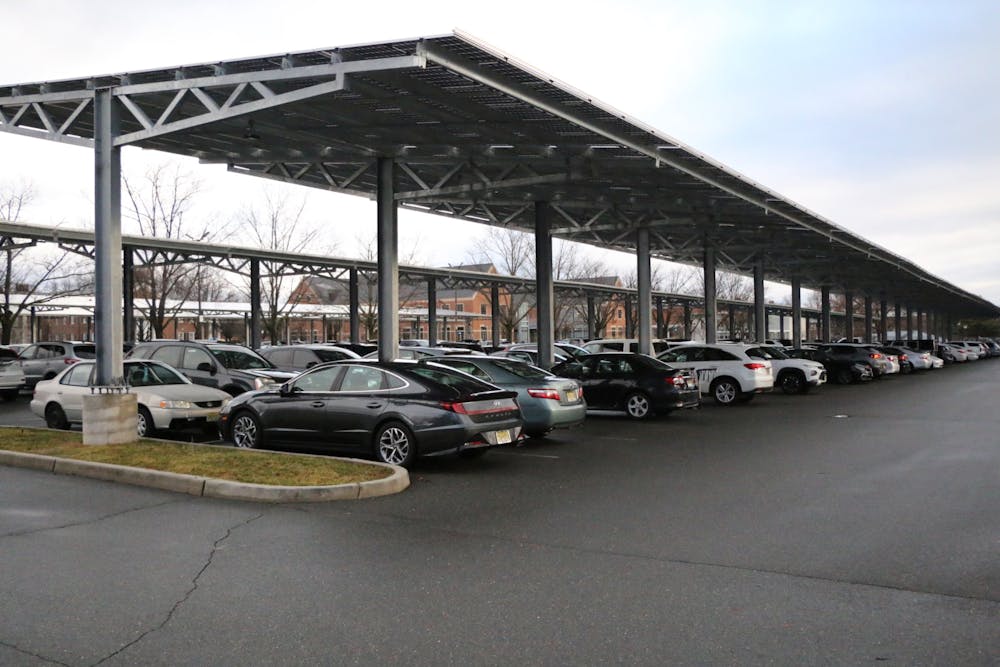By Tristan Weisenbach
Managing Editor
This semester, many commuter students have raised concerns about a lack of available student parking on campus, especially during busier times of the day.
Some students have highlighted that they often spend upwards of 20 minutes circling parking lots before finding a spot, causing them to be late to class on occasion.
“In order to make it to my 11:00 class, I usually leave my house between 10:20 [to] 10:30 to find a spot,” said Janna Sawyer, a junior anthropology and women’s, gender and sexuality studies double major who lives off-campus two minutes away. “Even then, I’ve still had instances where I get unlucky and end up running late to class.”
Last spring, the College conducted a parking study that examined many parking conditions, such as the total number of student parking spots, how many spots are available in each student lot during peak hours and the total number of student parking decals that were distributed.
The study indicated that there are a total of 2,699 student parking spots on campus. However, this number includes spots that are available to commuters along with spots restricted to residential students.
There were 3,246 student parking decals issued last spring, according to the study. This is slightly higher than the number issued this semester, which was made up of 2,135 commuter decals and 975 residential decals, totaling 3,110, according to Luke Sacks, the College’s head media relations officer. This amounts to 411 more decals distributed this semester than the total number of student parking spots available on campus.
“We look at actual utilization and availability of spaces to determine the appropriate number of permits to issue,” said Sacks in an email. “While a student may not always find parking in their preferred lot, the parking study confirmed there are ample spaces available for all categories of permit holders.”
The study examined the average number of available spaces in student parking lots during peak hours of the day, which range roughly between 10 a.m. to 2 p.m. The data in the study was collected each day from 7 a.m. to 5 p.m. between March 27 and April 7, 2023.
During peak hours, the study indicated that an average of 417 student parking spots were available across all six student lots. However, the availability varied for each lot: lots five, six, 11 and 17 had zero spots available, whereas lot 13 had 186 spots available and lot seven had 231 spots available.
Sacks said that most of the available spots in lot seven were on levels three and four, which are restricted to on-campus residents and Campus Town residents, respectively — commuters are allowed to park on levels one and two only. According to Sacks, “parking in locations not assigned to commuters is subject to ticketing.”
Sacks suggested that commuters or residential students who are unable to find available parking should park in the upper levels of lot 13.
“The parking situation is terrible, unless you arrive to class during off hours, you absolutely cannot get a spot in a location to make it to class on time,” said Adam Juraga, a senior business major. Juraga has stopped driving to campus during peak hours this semester and instead walks to campus from his house, as he says it’s faster.
Sacks said there are currently no plans to create additional parking spots for students or faculty. He also did not comment on any impacts that future residential housing developments may have on parking, stating there are “too many hypotheticals to answer.”
“I think there needs to be more parking access for us and possibly less space [given] to the faculty and staff,” said Aiyana Tran-Carroll, a freshman nursing major. “We struggle to find a spot while they have extra space.”
The end of the parking study outlined recommendations that the College could take to improve the parking situation, including incentivizing faculty and students to park further away from the center of campus, printing designated lot numbers directly on decals and designating lot 13 as “economy parking” by charging a reduced fee for parking in this lot compared to an increased fee for parking in “premium spaces.”
Sacks said that some recommendations are currently being considered by the College, but none have been implemented yet.







